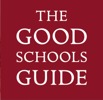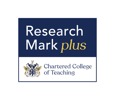
Religion, Philosophy and Ethics (RPE)
- Home
- Curriculum
- Subjects
- Religion, Philosophy and Ethics (RPE)
RPE provides the opportunity to explore the deepest and most profound questions about the meaning and purpose of human life from a range of religious and philosophical perspectives. It encourages students to learn skills of academic rigour: listening attentively to the opinions of others, assessing those arguments critically, and expressing their own ideas confidently.
The Department also supports a Diversity Society (DICE) and various faith societies, and these further encourage pupils to celebrate their own backgrounds and identities.
All pupils study RPE until the end of Third Form, when they can choose to take GCSE Religious Studies in Middle School. At A Level, we offer both A Level Religious Studies and AQA Philosophy as discrete subjects.
In the Lower School, students begin by examining the Abrahamic faiths in chronological order. We learn about beliefs and practices of Judaism, Christianity and Islam, including their historical origins. We aim to encourage pupils to critically engage with religious worldviews and relate what they learn to their own experiences; we actively welcome members of each faith to share their experiences and beliefs with their peers, and also encourage them to consider divergences within each religion. In the Second Form, pupils use this solid grounding in the Abrahamic faiths to consider the question ‘Does God exist?’ by undertaking a unit on the Philosophy of Religion. They then focus on the Hindu and Sikh faiths, and complete a Summer unit on Smaller World religions, such as Mormonism and Scientology, which enables them to consider the Sociology of Religion, for instance in by answering the question ‘what is a religion?’
Pupils in the Third Form are introduced to the study of Ethics and complete a comprehensive course in the major ethical approaches in Philosophy and Religion, such as natural law theory, utilitarianism, deontology and virtue ethics. They then apply these to ethical issues in the world today, such as abortion, capital punishment, euthanasia, and the treatment of animals. They then do a close study of Buddhism, including different denominations and key beliefs. They complete a project on Equality in the Summer term, where they present ideas about the meaning, extent and necessity of concepts such as equity, diversity and inclusion. In particular, they consider whether the UK is an equitable society, whether and why it should be, and what can or should be done if it isn’t.
Pupils can then choose to opt for the GCSE in Religious Studies during their time in the Middle School. We follow the Edexcel Religious Studies course, Specification B – ‘Beliefs in Action’. The course focusses on the beliefs and practices of Islam and Christianity, and then considers ethical issues through the lens of these religions. The ethical issues are crime and punishment, peace and conflict, marriage and the family, and matters of life and death, which includes ideas about the origin of the world and of humanity, considerations on the afterlife, and the debate between science and religion. The course is popular, and results are excellent year on year. Moreover, we aim to stretch pupils beyond the GCSE requirements, encouraging them to write detailed essays and setting them up for success at A Level and beyond.
At A Level, we offer A Level Philosophy and A Level Religious Studies. There are good numbers in both courses, although pupils cannot opt to take both. In Religious Studies A Level, pupils engage with the philosophers and theologians who have shaped our world, from Plato to Dawkins and Augustine to Kant. The issues examined range from ‘What does it mean to say something is good?’ to ‘Is freedom just an illusion? We follow the Edexcel specification, which involves a critical study of Philosophy of Religion, Religious Ethics and textual analysis (New Testament Studies). The Philosophy course focusses on Epistemology (what can we know? From where do we get knowledge?), Moral Philosophy (is eating animals acceptable? What does ‘murder is wrong’ really mean?), Philosophy of Religion, and the Philosophy of Mind, which asks what we can understand from the fact that humans have conscious experience. Is ‘the mind’ really just ‘the brain’? And what follows from this? We find incredibly high levels of motivation and enjoyment in both these subjects, which are taught by subject specialists with experience in the separate disciplines.







